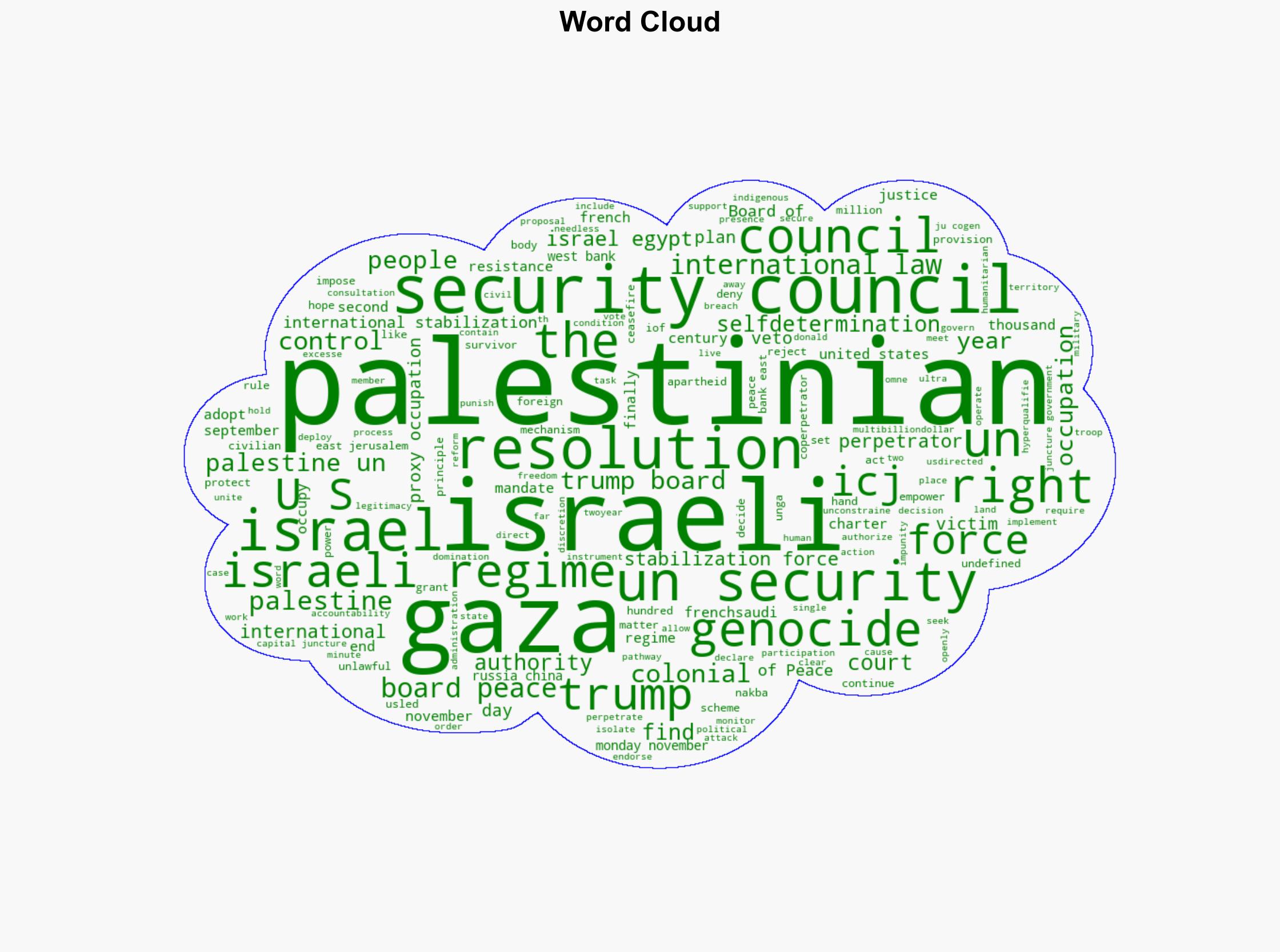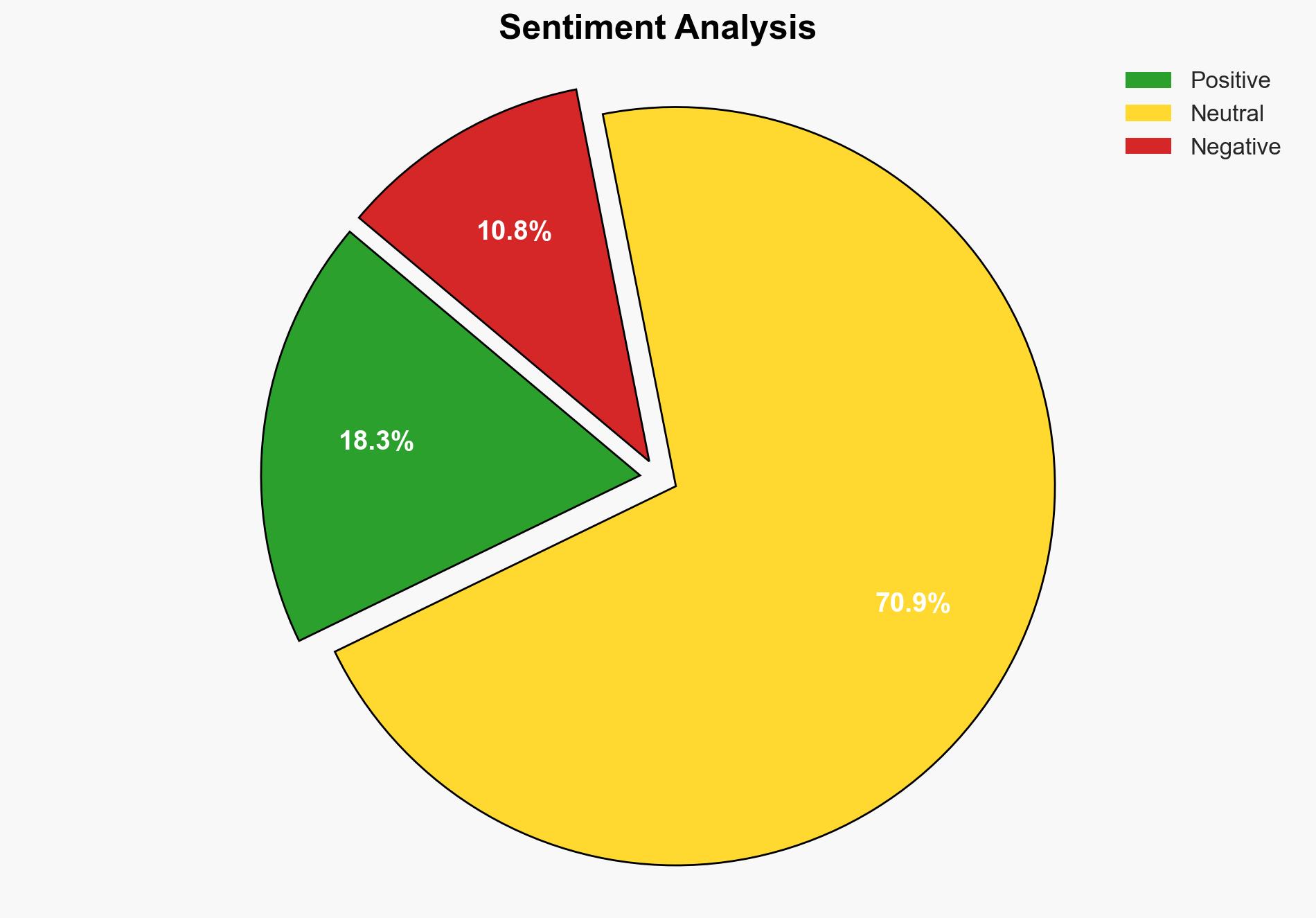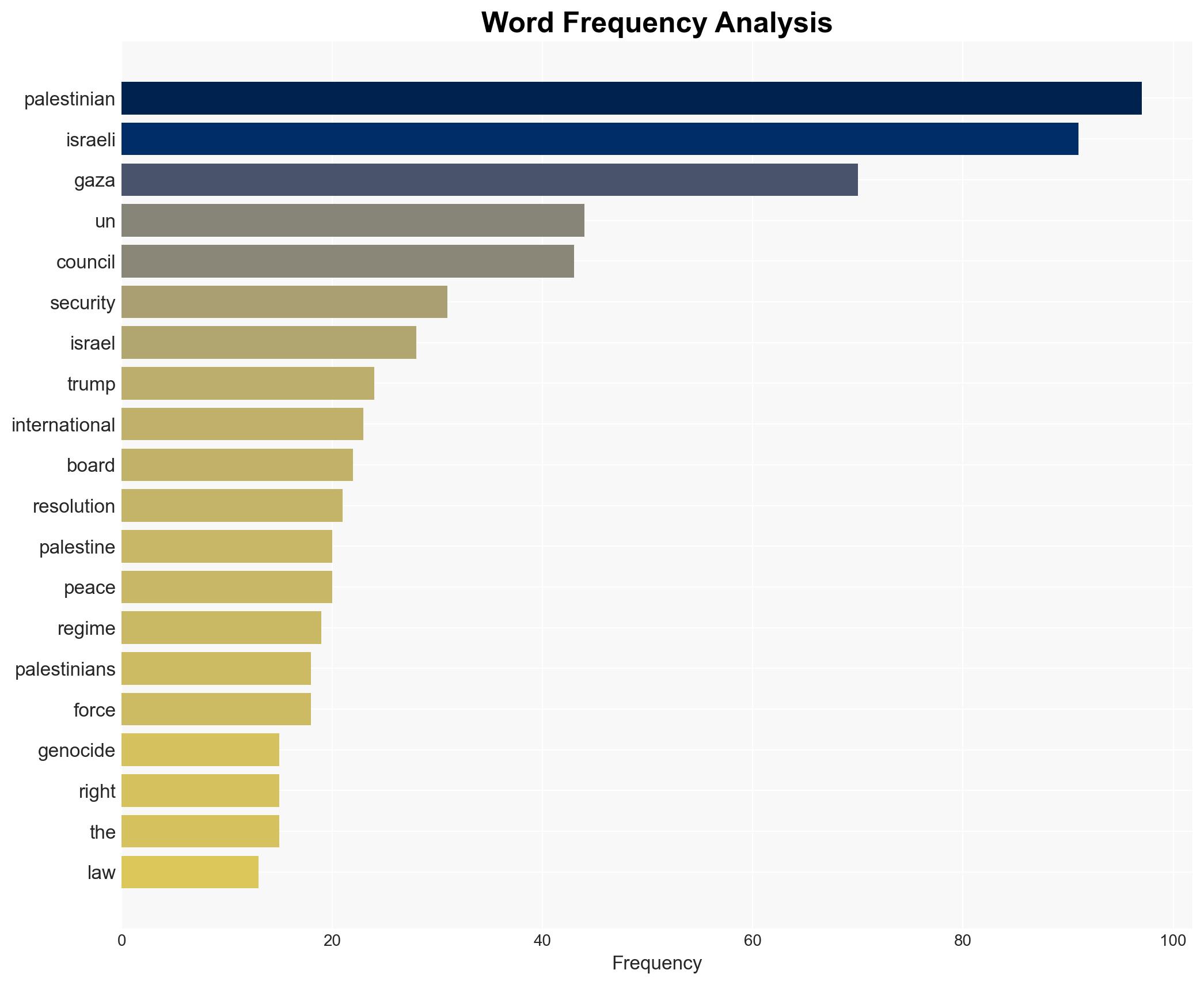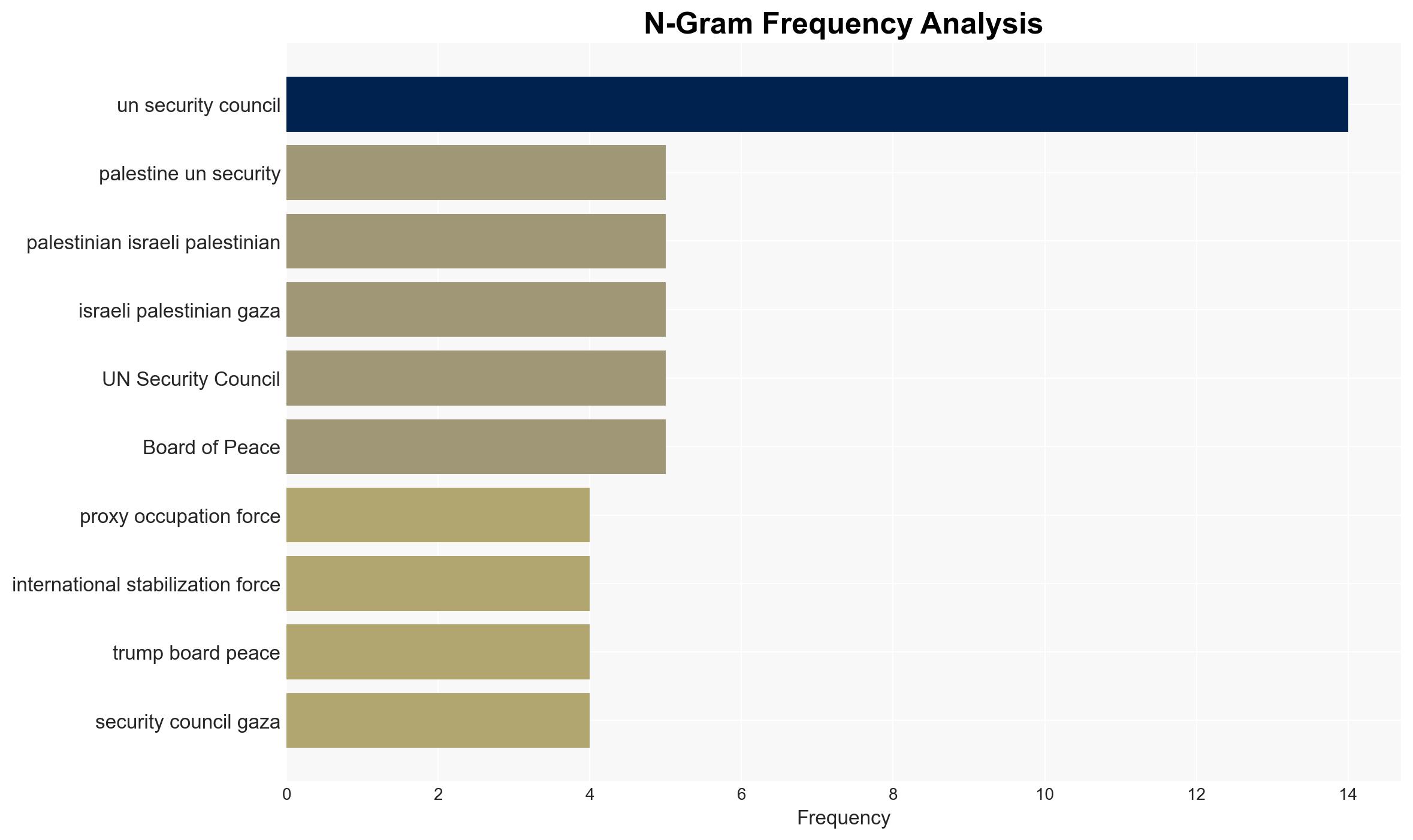The UN Embraces Colonialism Unpacking the Security Councils mandate for the US colonial administration of Gaza – Mondoweiss
Published on: 2025-11-19
AI-powered OSINT brief from verified open sources. Automated NLP signal extraction with human verification. See our Methodology and Why WorldWideWatchers.
Intelligence Report:
1. BLUF (Bottom Line Up Front)
The UN Security Council’s resolution to establish a US-led administration in Gaza is perceived as a controversial move that could exacerbate tensions in the region. The most supported hypothesis is that this resolution is a strategic maneuver to stabilize Gaza under international oversight, albeit with significant geopolitical risks. Confidence Level: Moderate. Recommended action includes diplomatic engagement with key stakeholders to address concerns and ensure transparent implementation of the resolution.
2. Competing Hypotheses
Hypothesis 1: The resolution is a strategic effort by the UN to stabilize Gaza through international oversight, aiming to protect civilians and facilitate reconstruction.
Hypothesis 2: The resolution is a veiled attempt to legitimize a neo-colonial administration, undermining Palestinian self-determination and perpetuating Israeli occupation.
Hypothesis 1 is more likely due to the UN’s historical role in conflict resolution and international stabilization efforts. However, Hypothesis 2 cannot be dismissed given the geopolitical complexities and historical grievances in the region.
3. Key Assumptions and Red Flags
Assumptions: The resolution intends to stabilize Gaza and is not an overt act of colonialism. The US-led administration will act in good faith to improve conditions in Gaza.
Red Flags: The absence of Palestinian representation in decision-making processes. The potential for the resolution to be perceived as biased towards Israeli interests. The risk of the resolution being used as a tool for geopolitical leverage by the US and its allies.
4. Implications and Strategic Risks
The resolution could lead to increased political tensions between Palestinian authorities and the international community. It may also trigger cyber and informational warfare as various actors attempt to influence public perception. Economically, the resolution might affect international aid flows and reconstruction efforts in Gaza. The risk of escalation into broader regional conflict remains if the resolution is perceived as unjust or biased.
5. Recommendations and Outlook
- Engage diplomatically with Palestinian authorities to ensure their involvement in the administration process.
- Monitor the implementation of the resolution closely to identify any deviations from its stated objectives.
- Facilitate dialogue between Israel and Palestine to address underlying grievances and promote a sustainable peace process.
- Best-case scenario: The resolution leads to improved security and living conditions in Gaza, paving the way for a lasting peace agreement.
- Worst-case scenario: The resolution exacerbates tensions, leading to increased violence and destabilization in the region.
- Most-likely scenario: The resolution faces significant challenges but results in incremental improvements in Gaza’s security and governance.
6. Key Individuals and Entities
Donald Trump: Potential influence on the resolution’s implementation through the proposed “Board of Peace.”
UN Security Council: Responsible for adopting the resolution and overseeing its execution.
Israeli Government: Key stakeholder with vested interests in the resolution’s outcomes.
7. Thematic Tags
National Security Threats, Geopolitical Strategy, Middle East Conflict, International Law
Structured Analytic Techniques Applied
- Cognitive Bias Stress Test: Expose and correct potential biases in assessments through red-teaming and structured challenge.
- Bayesian Scenario Modeling: Use probabilistic forecasting for conflict trajectories or escalation likelihood.
- Network Influence Mapping: Map relationships between state and non-state actors for impact estimation.
Explore more:
National Security Threats Briefs ·
Daily Summary ·
Support us





